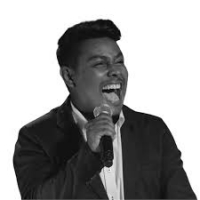Latest Sheet Music
Rolf Harris

Rolf Harris, CBE, AM (born 30 March 1930), is an Australian/British musician, singer, composer, painter, and television host and personality.
Harris has been credited with inventing a simple home-made instrument called the wobble board. This discovery was accidentally made in the course of his work when he attempted to dry a freshly painted hardboard with added heat, from hearing the sound made by the board as he shook it by the short edges to cool it off. He suggests the effect can best be obtained through faint bouncing of a tempered hardboard or a thinner MDF board between the palms of one's hands.
Harris has been credited with inventing a simple home-made instrument called the wobble board. This discovery was accidentally made in the course of his work when he attempted to dry a freshly painted hardboard with added heat, from hearing the sound made by the board as he shook it by the short edges to cool it off. He suggests the effect can best be obtained through faint bouncing of a tempered hardboard or a thinner MDF board between the palms of one's hands.
Michael Bolton

Michael Bolton (born Michael Bolotin on February 26, 1953), is an American singer-songwriter, best known for his soft rock ballads and tenor vocals.
His achievements include selling 53 million albums, eight top ten albums, two number one singles on the Billboard charts, and awards from both the American Music Awards and Grammy Awards.
Bolton's hard rock band, Blackjack, once toured with heavy metal singer Ozzy Osbourne. He began recording as Michael Bolotin in 1975, after gaining his first major hit as a songwriter, co-writing "How Am I Supposed to Live Without You" for Laura Branigan, previously best-known for singing the disco-pop classic "Gloria". Narrowly missing the Top 10 on the U.S. pop chart, Branigan took the song to number one on the Adult Contemporary chart for three weeks. The two sought to work with each other again, and their next of several associations was when Bolton co-wrote "I Found Someone" for Branigan in 1985. Her version was only a minor hit, but two years later, Cher resurrected the song, and with it her own singing career. Bolton co-wrote several other songs for both singers.
Bolton would achieve his greatest success in the late eighties and early nineties as a singer in the adult contemporary/easy listening genre. One of his first major hits was his 1987 interpretation of the Otis Redding classic, "(Sittin' On) the Dock of the Bay." Always interested in soul and Motown classics, Bolton's success with that song encouraged him to tackle the standard "Georgia On My Mind," with which he had another hit. Most of Bolton's recordings are original material, however, he has also written songs for such artists as Barbra Streisand, Kenny Rogers, Kenny G, Peabo Bryson and Patti LaBelle. Bolton's early songwriting collaborators included Doug James and Mark Mangold, and as his fame grew he began to cowrite with higher-profile writers such as BabyFace, Diane Warren, and Bob Dylan. As a singer, he has performed with Plácido Domingo, Luciano Pavarotti, José Carreras, Lucia Aliberti, Renée Fleming, Zucchero, Patti LaBelle, Céline Dion, Ray Charles, Percy Sledge, Wynonna Judd, and BB King.
His achievements include selling 53 million albums, eight top ten albums, two number one singles on the Billboard charts, and awards from both the American Music Awards and Grammy Awards.
Bolton's hard rock band, Blackjack, once toured with heavy metal singer Ozzy Osbourne. He began recording as Michael Bolotin in 1975, after gaining his first major hit as a songwriter, co-writing "How Am I Supposed to Live Without You" for Laura Branigan, previously best-known for singing the disco-pop classic "Gloria". Narrowly missing the Top 10 on the U.S. pop chart, Branigan took the song to number one on the Adult Contemporary chart for three weeks. The two sought to work with each other again, and their next of several associations was when Bolton co-wrote "I Found Someone" for Branigan in 1985. Her version was only a minor hit, but two years later, Cher resurrected the song, and with it her own singing career. Bolton co-wrote several other songs for both singers.
Bolton would achieve his greatest success in the late eighties and early nineties as a singer in the adult contemporary/easy listening genre. One of his first major hits was his 1987 interpretation of the Otis Redding classic, "(Sittin' On) the Dock of the Bay." Always interested in soul and Motown classics, Bolton's success with that song encouraged him to tackle the standard "Georgia On My Mind," with which he had another hit. Most of Bolton's recordings are original material, however, he has also written songs for such artists as Barbra Streisand, Kenny Rogers, Kenny G, Peabo Bryson and Patti LaBelle. Bolton's early songwriting collaborators included Doug James and Mark Mangold, and as his fame grew he began to cowrite with higher-profile writers such as BabyFace, Diane Warren, and Bob Dylan. As a singer, he has performed with Plácido Domingo, Luciano Pavarotti, José Carreras, Lucia Aliberti, Renée Fleming, Zucchero, Patti LaBelle, Céline Dion, Ray Charles, Percy Sledge, Wynonna Judd, and BB King.
Muse

Muse are a British rock band formed in Teignmouth, Devon, United Kingdom in 1994 under the alias of Rocket Baby Dolls. The band comprises Matthew Bellamy (vocals, guitar and piano), Christopher Wolstenholme (bass guitar and backing vocals) and Dominic Howard (drums and percussion). Muse's style can be considered as a mixture of many musical genres, most notably alternative rock, classical music and electronica. Muse are known best for their energetic and visually dazzling live performances and on June 16th & 17th, 2007 became the first band to sell out the newly built Wembley Stadium in London. Muse have released four studio albums with their first, Showbiz, released in 1999, followed by Origin of Symmetry in 2001 and Absolution in 2003. The most recent, Black Holes & Revelations (2006), was also the most critically acclaimed, garnering the band a Mercury Prize nomination and a third place finish in the NME Albums of the Year list for 2006. Muse have won various awards throughout their career including 5 MTV Europe Music Awards, 5 Q Awards, 4 NME Awards and 2 Brit awards.
Astor Piazzola

Astor Pantaleón Piazzolla (Spanish pronunciation: , Italian pronunciation: ; March 11, 1921 – July 4, 1992) was an Argentine tango composer, bandoneon player, and arranger. His oeuvre revolutionized the traditional tango into a new style termed nuevo tango, incorporating elements from jazz and classical music. A virtuoso bandoneonist, he regularly performed his own compositions with a variety of ensembles.
In 1992, American music critic Stephen Holden described Piazzolla as "the world's foremost composer of tango music"
In 1992, American music critic Stephen Holden described Piazzolla as "the world's foremost composer of tango music"
The Beatles

The Beatles were a pop and rock group from Liverpool, England formed in 1960. Primarily consisting of John Lennon (rhythm guitar, vocals), Paul McCartney (bass guitar, vocals), George Harrison (lead guitar, vocals) and Ringo Starr (drums, vocals) throughout their career, The Beatles are recognised for leading the mid-1960s musical "British Invasion" into the United States. Although their initial musical style was rooted in 1950s rock and roll and homegrown skiffle, the group explored genres ranging from Tin Pan Alley to psychedelic rock. Their clothes, styles, and statements made them trend-setters, while their growing social awareness saw their influence extend into the social and cultural revolutions of the 1960s. After the band broke up in 1970, all four members embarked upon solo careers.
The Beatles are one of the most commercially successful and critically acclaimed bands in the history of popular music, selling over a billion records internationally. In the United Kingdom, The Beatles released more than 40 different singles, albums, and EPs that reached number one, earning more number one albums (15) than any other group in UK chart history. This commercial success was repeated in many other countries; their record company, EMI, estimated that by 1985 they had sold over one billion records worldwide. According to the Recording Industry Association of America, The Beatles have sold more albums in the United States than any other band. In 2004, Rolling Stone magazine ranked The Beatles number one on its list of 100 Greatest Artists of All Time. According to that same magazine, The Beatles' innovative music and cultural impact helped define the 1960s, and their influence on pop culture is still evident today. In 2008, Billboard magazine released a list of top-selling Hot 100 artists to celebrate the chart's fiftieth anniversary; The Beatles reached #1 again.
The Beatles are one of the most commercially successful and critically acclaimed bands in the history of popular music, selling over a billion records internationally. In the United Kingdom, The Beatles released more than 40 different singles, albums, and EPs that reached number one, earning more number one albums (15) than any other group in UK chart history. This commercial success was repeated in many other countries; their record company, EMI, estimated that by 1985 they had sold over one billion records worldwide. According to the Recording Industry Association of America, The Beatles have sold more albums in the United States than any other band. In 2004, Rolling Stone magazine ranked The Beatles number one on its list of 100 Greatest Artists of All Time. According to that same magazine, The Beatles' innovative music and cultural impact helped define the 1960s, and their influence on pop culture is still evident today. In 2008, Billboard magazine released a list of top-selling Hot 100 artists to celebrate the chart's fiftieth anniversary; The Beatles reached #1 again.
Marc Byrd

Marcus "Marc" Byrd (born 1970) is an American musician, writer, and producer best known as one-half of the post-rock/ambient duo Hammock with Andrew Thompson.Since its formation in 2005, Hammock has released ten full-length albums and five EPs. One review of Hammock's 2013 record Oblivion Hymns remarked that Hammock "...has gone on to become one of the foremost purveyors of affecting ambient post-rock on the scene." Byrd was also involved in the 2006 ambient art project The Sleepover Series, Volume One, which featured five solo tracks written and performed by Byrd.
Luis de Milán
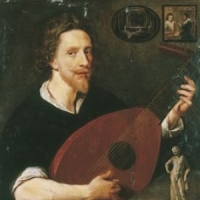
Luis de Milán (also known as Lluís del Milà or Luys Milán) (c. 1500 – c. 1561) was a Spanish Renaissance composer, vihuelist, and writer on music. He was the first composer in history to publish music for the vihuela de mano, an instrument employed primarily in the Iberian peninsula and some of the Italian states during the 15th and 16th centuries, and he was also one of the first musicians to specify verbal tempo indications in his music.He probably lived all his life in Valencia, though details are sketchy at best. He seems to have been employed by the ducal court until around 1538. In 1535 he published his first book, a parlor game with music called El juego de mandar. The next year he issued what would be his most important book.
Traditional

The Rain

The world as we know it has come to an end, due to a rain-carried virus that wiped out nearly everybody in Scandinavia. Six years after that event, two Danish siblings emerge from the safety of the bunker where they have been staying. After discovering all remnants of civilization gone, they join a group of fellow young survivors, and together they head out on a danger-filled quest throughout the abandoned land in search of signs of life. The survivors think they have been set free from societal rules of the past, but they quickly find that even in a post-apocalyptic world there is love, jealousy and other coming-of-age dilemmas that young people have always faced.
Mozart

Wolfgang Amadeus Mozart, full name Johann Chrysostom Wolfgang Amadeus Mozart (27 January 1756 â 5 December 1791) was a prolific and influential composer of the Classical era. His over 600 compositions include works widely acknowledged as pinnacles of symphonic, concertante, chamber, piano, operatic, and choral music. Mozart is among the most enduringly popular of classical composers, and many of his works are part of the standard concert repertoire.
Mozart's music, like Haydn's, stands as an archetypal example of the Classical style. His works spanned the period during which that style transformed from one exemplified by the style galant to one that began to incorporate some of the contrapuntal complexities of the late Baroque, complexities against which the galant style had been a reaction. Mozart's own stylistic development closely paralleled the development of the classical style as a whole. In addition, he was a versatile composer and wrote in almost every major genre, including symphony, opera, the solo concerto, chamber music including string quartet and string quintet, and the piano sonata. While none of these genres were new, the piano concerto was almost single-handedly developed and popularized by Mozart. He also wrote a great deal of religious music, including masses; and he composed many dances, divertimenti, serenades, and other forms of light entertainment.
The central traits of the classical style can be identified in Mozart's music. Clarity, balance, and transparency are hallmarks of his work.
Mozart's music, like Haydn's, stands as an archetypal example of the Classical style. His works spanned the period during which that style transformed from one exemplified by the style galant to one that began to incorporate some of the contrapuntal complexities of the late Baroque, complexities against which the galant style had been a reaction. Mozart's own stylistic development closely paralleled the development of the classical style as a whole. In addition, he was a versatile composer and wrote in almost every major genre, including symphony, opera, the solo concerto, chamber music including string quartet and string quintet, and the piano sonata. While none of these genres were new, the piano concerto was almost single-handedly developed and popularized by Mozart. He also wrote a great deal of religious music, including masses; and he composed many dances, divertimenti, serenades, and other forms of light entertainment.
The central traits of the classical style can be identified in Mozart's music. Clarity, balance, and transparency are hallmarks of his work.
Oscar Hammerstein

Oscar Greeley Clendenning Ritter von Hammerstein II (/ˈhæmərstaɪn/; July 12, 1895 – August 23, 1960) was an American librettist, theatrical producer, and (usually uncredited) theatre director of musicals for almost 40 years. He won eight Tony Awards and two Academy Awards for Best Original Song. Many of his songs are standard repertoire for vocalists and jazz musicians. He co-wrote 850 songs.
Hammerstein was the lyricist and playwright in his partnerships; his collaborators wrote the music. Hammerstein collaborated with numerous composers, such as Jerome Kern, with whom he wrote Show Boat, Vincent Youmans, Rudolf Friml, Richard A. Whiting, and Sigmund Romberg, but he is best known for his collaborations with Richard Rodgers, as the duo Rodgers and Hammerstein, whose collaborations include Oklahoma!, Carousel, South Pacific, The King and I, and The Sound of Music.
Hammerstein was the lyricist and playwright in his partnerships; his collaborators wrote the music. Hammerstein collaborated with numerous composers, such as Jerome Kern, with whom he wrote Show Boat, Vincent Youmans, Rudolf Friml, Richard A. Whiting, and Sigmund Romberg, but he is best known for his collaborations with Richard Rodgers, as the duo Rodgers and Hammerstein, whose collaborations include Oklahoma!, Carousel, South Pacific, The King and I, and The Sound of Music.
Paramore

Paramore is an American Pop rock band that formed in Franklin, Tennessee in 2004 consisting of Hayley Williams (lead vocals/keyboard), Josh Farro (lead guitar/backing vocals), Jeremy Davis (bass guitar), and Zac Farro (drums). The group released their debut album All We Know Is Falling in 2005, and their second album Riot! in 2007, which was certified platinum in the US and gold in the UK and Ireland.
John Scofield

John Scofield (born December 26, 1951), sometimes referred to as "Sco", is an American jazz-rock guitarist and composer whose music includes bebop, jazz fusion, funk, blues, soul, and rock. He has worked with Miles Davis, Dave Liebman, Joe Henderson, Charles Mingus, Joey DeFrancesco, Herbie Hancock, Eddie Palmieri, Pat Metheny, Bill Frisell, Joe Lovano, Pat Martino, Mavis Staples, Phil Lesh, Billy Cobham, Medeski Martin & Wood, George Duke, Jaco Pastorius, John Mayer, Robert Glasper, and Gov't Mule.
Alfred Schnittke

Alfred Garrievich Schnittke was a Soviet and German composer. Schnittke's early music shows the strong influence of Dmitri Shostakovich. He developed a polystylistic technique in works such as the epic Symphony No. 1 and his first concerto grosso. Wikipedia Born: November 24, 1934, Engels, Russia Died: August 3, 1998, Hamburg, Germany
Place of burial: Novodevichy Cemetery, Moscow, Russia Spouse: Irina Schnittke (m. 1961–1998), Galina Koltsina (m. 1956–1958)
Place of burial: Novodevichy Cemetery, Moscow, Russia Spouse: Irina Schnittke (m. 1961–1998), Galina Koltsina (m. 1956–1958)
julio cesar oliva

Encouraged by his parents, he began his musical studies with his father and perfected his knowledge at the National Conservatory of Mexico. In that last campus he was a disciple of Alberto Salas (1963-1966). He participated in various guitar improvement courses, and in 1976 he received first place in the National Guitar Works Competition held in Paracho. He was a pedagogue until 1997 at the Sala Chopin Study, where he used and developed his own pedagogical method. As a composer, most of his catalog is made up of works for guita
Shalsheles

Shalsheles Musical group Albums: Shalshelet, We're Coming Home, MORE Songs Esa Ainye Shalsheles, Vol. 1 · 1999
Ekrah Shalsheles, Vol. 1 · 1999 Ata Echad Ata Echad (feat. A.K.A. Pella) · 2015
Ekrah Shalsheles, Vol. 1 · 1999 Ata Echad Ata Echad (feat. A.K.A. Pella) · 2015
Bon Jovi
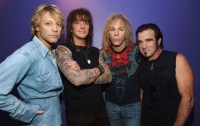
Bon Jovi is a rock band from Sayreville, New Jersey. Fronted by lead singer and namesake Jon Bongiovi, the group originally achieved large-scale success in the 1980s. Over the past 25 years, Bon Jovi has sold over 120 million albums worldwide, including 34 million in the United States alone.
Bon Jovi formed in 1983 with lead singer Jon Bon Jovi, guitarist Richie Sambora, keyboardist David Bryan, bassist Alec John Such, and drummer Tico Torres. Other than the departure of Alec John Such in 1994 (which pared the lineup down to a quartet), the lineup has remained the same for the past 25 years. After two moderately successful albums in 1984 and 1985, the band scored big with Slippery When Wet (1986) and New Jersey (1988), which sold a combined 19 million copies in the U.S. alone, charted eight Top Ten hits (including four number one hits), and launched the band into global super stardom. After non-stop touring, the band went on hiatus after the New Jersey Tour in 1990, during which time Jon Bon Jovi and Richie Sambora both released successful solo albums. In 1992, the band returned with the double platinum Keep the Faith and has since created a string of platinum albums throughout the 1990s and 2000s.
In 2006, the band won a Grammy for best Country Collaboration for "Who Says You Can't Go Home" with Jennifer Nettles from Sugarland and also became the first rock band to reach #1 on the Hot Country Songs chart with the same song. The band has also received multiple Grammy nominations for music from the albums Crush, Bounce, and Lost Highway.
Throughout their career, the band has released ten studio albums, of which nine have gone platinum. In addition, the band has charted 19 singles to the Top 40 of the Billboard Hot 100, four of which reached #1 ("You Give Love a Bad Name", "Livin' on a Prayer", "Bad Medicine", and "I'll Be There for You"). The band also holds the record for the most weeks for a hard rock album at #1 on the Billboard 200 with Slippery When Wet, as well as the most Top 10 singles from a hard rock album, with New Jersey, which charted five such singles.
Bon Jovi formed in 1983 with lead singer Jon Bon Jovi, guitarist Richie Sambora, keyboardist David Bryan, bassist Alec John Such, and drummer Tico Torres. Other than the departure of Alec John Such in 1994 (which pared the lineup down to a quartet), the lineup has remained the same for the past 25 years. After two moderately successful albums in 1984 and 1985, the band scored big with Slippery When Wet (1986) and New Jersey (1988), which sold a combined 19 million copies in the U.S. alone, charted eight Top Ten hits (including four number one hits), and launched the band into global super stardom. After non-stop touring, the band went on hiatus after the New Jersey Tour in 1990, during which time Jon Bon Jovi and Richie Sambora both released successful solo albums. In 1992, the band returned with the double platinum Keep the Faith and has since created a string of platinum albums throughout the 1990s and 2000s.
In 2006, the band won a Grammy for best Country Collaboration for "Who Says You Can't Go Home" with Jennifer Nettles from Sugarland and also became the first rock band to reach #1 on the Hot Country Songs chart with the same song. The band has also received multiple Grammy nominations for music from the albums Crush, Bounce, and Lost Highway.
Throughout their career, the band has released ten studio albums, of which nine have gone platinum. In addition, the band has charted 19 singles to the Top 40 of the Billboard Hot 100, four of which reached #1 ("You Give Love a Bad Name", "Livin' on a Prayer", "Bad Medicine", and "I'll Be There for You"). The band also holds the record for the most weeks for a hard rock album at #1 on the Billboard 200 with Slippery When Wet, as well as the most Top 10 singles from a hard rock album, with New Jersey, which charted five such singles.
Hoagy Carmichael

Hoagland Howard "Hoagy" Carmichael (November 22, 1899 – December 27, 1981) was an American composer, pianist, singer, actor, and bandleader. He is best known for writing the melody to "Stardust" (1927), one of the most-recorded American songs of all time. Carmichael spelled it "Star Dust", but the space is usually omitted.
Alec Wilder, in his study of the American popular song, concluded that Hoagy Carmichael was the "most talented, inventive, sophisticated and jazz-oriented" of the hundreds of writers composing pop songs in the first half of the 20th century.
Carmichael finished and recorded one of his most famous songs, the sophisticated "Star Dust" (later re-named "Stardust", with lyrics), at the Gennett Records studio in Richmond, Indiana, with Carmichael doing the piano solo. The song, an idiosyncratic melody in medium tempo, actually a song about a song, later became the quintessential American standard, recorded by dozens of artists. Shortly thereafter, Carmichael got bigtime recognition when Paul Whiteman recorded "Washboard Blues", with Carmichael playing and singing, and the Dorsey brothers and Bix Beiderbecke in the orchestra. Despite his growing fame, at this stage Carmichael was still somewhat handicapped by his inability to sight-read and notate music properly, though clearly innovative and talented. With coaching, he soon became more proficient at arranging his own music.
Alec Wilder, in his study of the American popular song, concluded that Hoagy Carmichael was the "most talented, inventive, sophisticated and jazz-oriented" of the hundreds of writers composing pop songs in the first half of the 20th century.
Carmichael finished and recorded one of his most famous songs, the sophisticated "Star Dust" (later re-named "Stardust", with lyrics), at the Gennett Records studio in Richmond, Indiana, with Carmichael doing the piano solo. The song, an idiosyncratic melody in medium tempo, actually a song about a song, later became the quintessential American standard, recorded by dozens of artists. Shortly thereafter, Carmichael got bigtime recognition when Paul Whiteman recorded "Washboard Blues", with Carmichael playing and singing, and the Dorsey brothers and Bix Beiderbecke in the orchestra. Despite his growing fame, at this stage Carmichael was still somewhat handicapped by his inability to sight-read and notate music properly, though clearly innovative and talented. With coaching, he soon became more proficient at arranging his own music.
Vu Thanh An

Vu Thanh An (born 1943) was one of the prominent musicians of South Vietnam from 1954 to 1975. The "Untitled" articles are his famous works. Currently, he is a deacon of the Roman Catholic Church, ceasing to compose love songs, but only composing hymns.
Benny goodman

Benjamin David "Benny" Goodman is an American jazz and swing musician and clarinetist. It is known as the "King of Swing." Date of birth: May 30, 1909, Chicago, Illinois, United States Date and place of death: June 13, 1986, Manhattan House, New York, USA
Instrument: Clarinet
Instrument: Clarinet
Pham Duy
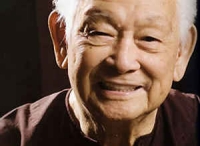
Phạm Duy (October 5, 1921 – January 27, 2013) was one of Vietnam's most prolific songwriters with a musical career that spanned more than seven decades through some of the most turbulent periods of Vietnamese history and with more than one thousand songs to his credit, he is widely considered one of the three most salient and influential figures of modern Vietnamese music, along with Văn Cao and Trịnh Công Sơn. His music is noted for combining elements of traditional music with new methods, creating melodies that are both modern and traditional. A politically polarizing figure, his entire body of work was banned in North Vietnam during the Vietnam War and subsequently in unified Vietnam for more than 30 years until the government began to ease restrictions on some of his work upon his repatriation in 2005.
Gilbert O'Sullivan
Gilbert O'Sullivan is an Irish singer songwriter, best known for his early 1970s hits "Alone Again (Naturally)", "Clair", and "Get Down". Worldwide he has charted ...
Chris Isaak
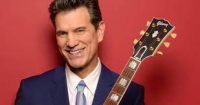
Christopher Joseph Isaak is an American musician and occasional actor. He is widely known for his hit "Wicked Game", as well as the songs "Baby Did a Bad Bad Thing" and "Somebody's Crying". He is known for his signature 1950s rock & roll style and crooner sound, as well as his falsetto and reverb-laden music.
Mamiko Koto

Mamiko Noto (能登 麻美子, Noto Mamiko, born February 6, 1980) is a Japanese actress, voice actress and singer.
Noto was born in Ishikawa Prefecture. Some of Noto's prominent anime roles include Kotomi Ichinose in Clannad, Rin in Inuyasha, Kotori Monou in X, Aoi Kannazuki in Kaitō Tenshi Twin Angel, Durandal in Honkai Impact 3rd, Haruka Nogizaka in Nogizaka Haruka no Himitsu, UMP9 in Girls' Frontline, Fiel Nirvalen in No Game No Life, Sawako Kuronuma in Kimi ni Todoke, and Satellizer L. Bridget in Freezing. Noto was nominated in the 1st Seiyu Awards for her work as Yakumo Tsukamoto in School Rumble and as Masane Amaha in Witchblade. Noto has released several character songs and albums which have charted in Oricon, and was a guest at the Otakon and Anime Expo conventions held in the United States.
Noto was born in Ishikawa Prefecture. Some of Noto's prominent anime roles include Kotomi Ichinose in Clannad, Rin in Inuyasha, Kotori Monou in X, Aoi Kannazuki in Kaitō Tenshi Twin Angel, Durandal in Honkai Impact 3rd, Haruka Nogizaka in Nogizaka Haruka no Himitsu, UMP9 in Girls' Frontline, Fiel Nirvalen in No Game No Life, Sawako Kuronuma in Kimi ni Todoke, and Satellizer L. Bridget in Freezing. Noto was nominated in the 1st Seiyu Awards for her work as Yakumo Tsukamoto in School Rumble and as Masane Amaha in Witchblade. Noto has released several character songs and albums which have charted in Oricon, and was a guest at the Otakon and Anime Expo conventions held in the United States.
Guns N' Roses

Guns N 'Roses is an American rock band founded in 1985 in Los Angeles, California. Axl Rose, Slash, Izzy Stradlin, Duff McKagan, and Steven , Genres: Hard rock, Heavy metal, Blues rock, Glam rock They started their music life in Los Angeles, California, USA (1985) Albums: Appetite for Destruction, Use Your Illusion I
Praxis Pietatis Melica
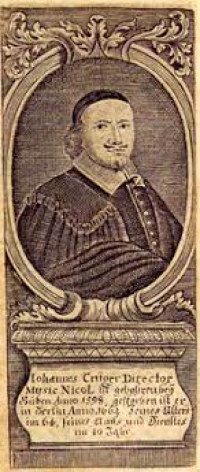
Praxis Pietatis Melica Composer.
Enya
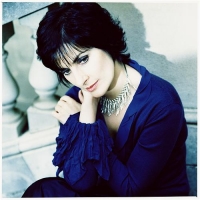
Enya (born Eithne Patricia Nà Bhraonáinon May 17, 1961, Gaoth Dobhair, County Donegal, Ireland), sometimes presented in the media as Enya Brennan, is an Irish singer, instrumentalist and composer. She is Ireland's best-selling solo artist and is officially the country's second biggest musical export (after U2). Her works have earned her four Grammy Awards and an Academy Award nomination, and she is also famous for performing in 10 different languages during her lengthy career. Enya is an approximate transcription of how Eithne is pronounced in her native Irish, in the Donegal dialect.
Chopin

Frédéric Chopin (1 March 1810 – 17 October 1849) was a Polish composer and virtuoso pianist of the Romantic period. He is widely regarded as the greatest Polish composer, and ranks as one of music's greatest tone poets.
He was born in the village of Żelazowa Wola, in the Duchy of Warsaw, to a Polish mother and French-expatriate father, and in his early life was regarded as a child-prodigy pianist. In November 1830, at the age of 20, Chopin went abroad; following the suppression of the Polish November Uprising of 1830–31, he became one of many expatriates of the Polish "Great Emigration."
In Paris, he made a comfortable living as a composer and piano teacher, while giving few public performances. A Polish patriot,
Chopin's extant compositions were written primarily for the piano as a solo instrument. Though technically demanding, Chopin's style emphasizes nuance and expressive depth rather than virtuosity. Chopin invented musical forms such as the ballade and was responsible for major innovations in forms such as the piano sonata, waltz, nocturne, étude, impromptu and prelude. His works are mainstays of Romanticism in 19th-century classical music.
He was born in the village of Żelazowa Wola, in the Duchy of Warsaw, to a Polish mother and French-expatriate father, and in his early life was regarded as a child-prodigy pianist. In November 1830, at the age of 20, Chopin went abroad; following the suppression of the Polish November Uprising of 1830–31, he became one of many expatriates of the Polish "Great Emigration."
In Paris, he made a comfortable living as a composer and piano teacher, while giving few public performances. A Polish patriot,
Chopin's extant compositions were written primarily for the piano as a solo instrument. Though technically demanding, Chopin's style emphasizes nuance and expressive depth rather than virtuosity. Chopin invented musical forms such as the ballade and was responsible for major innovations in forms such as the piano sonata, waltz, nocturne, étude, impromptu and prelude. His works are mainstays of Romanticism in 19th-century classical music.
Carole King

Carole King (born February 9, 1942) is an American singer, songwriter, and pianist. She was most active as a singer during the first half of the 1970s, though she was a successful songwriter for considerably longer both before and after this period.
King has won four Grammy Awards and has been inducted into both the Songwriters Hall of Fame and the Rock and Roll Hall of Fame for her songwriting, along with long-time partner Gerry Goffin.
King has won four Grammy Awards and has been inducted into both the Songwriters Hall of Fame and the Rock and Roll Hall of Fame for her songwriting, along with long-time partner Gerry Goffin.
Gabriel Faure

Gabriel Urbain Fauré (12 May 1845 – 4 November 1924) was a French composer, organist, pianist, and teacher. He was the foremost French composer of his generation, and his musical style influenced many 20th century composers. His harmonic and melodic language affected how harmony was later taught.
Chris Potter
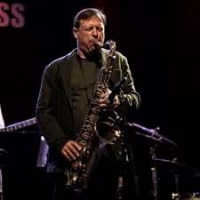
Chris Potter (born January 1, 1971) is an American jazz saxophonist, composer, and multi-instrumentalist.Potter came to prominence as a sideman with trumpeter Red Rodney, before stints with drummer Paul Motian, bassist Dave Holland, trumpeter Dave Douglas and others.
David Bisbal

David Bisbal Ferre (born 5 June 1979) is a Spanish singer, songwriter, and actor. He gained his initial fame as a runner-up on the interactive reality television show Operación Triunfo.He has since released five studio albums, all of which topped the Spanish Albums Chart, in addition to recording a number of live albums. He has toured throughout Europe and Latin America and is now considered to be a crossover international artist.
Linda Lapp

Linda Lapp Canadian folk musician based in Victoria, British Columbia
Robert Yount
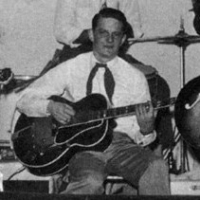
Robert Gene Yount was an American musician, singer and songwriter in the country music genre. He was born in Oklahoma City, Oklahoma. Between 1949 and 1954 Yount worked as a guitarist and songwriter for Eddie Miller. Together with Miller, he wrote the song "Release Me" for which he is best known.
Fiona Apple

Fiona Apple (born Fiona Apple McAfee Maggart on September 13, 1977) is a Grammy-winning American singer-songwriter. She gained popularity through her 1996 album Tidal, especially with the single "Criminal", and because of the music video made for it. Her music is fundamentally based on very personal poetic verses, accompanied by often aggressive and progressive production, rooted equally in early jazz, pop, and alt-rock. A supporter of People for the Ethical Treatment of Animals (PETA), Apple is a vegan.
Fernando Sor

Josep Ferran Sorts i Muntades (baptised 14 February 1778 – died 10 July 1839, Paris) was a Spanish classical guitarist and composer. He is best known for his guitar compositions, but he also composed music for opera and ballet, earning acclaim for his ballet titled Cendrillon. Sor’s works for guitar range from pieces for advanced players, such as Variations on a Theme of Mozart, to beginner pieces.
Sor gave concerts throughout Europe, including in England, Paris, Berlin and Warsaw. Before the early 19th century, the guitar was little-known in England. Sor seems to have created a market for himself there and then met the demand. Sor’s contemporaries considered him to be the best guitarist in the world, and his works for guitar have been widely played and reprinted since his death.
As Sor's works were published in various countries, his name was translated, leading to variations in the spelling. Variations have included Joseph Fernando Macari Sors, Fernando Sor, Ferran Sor, Ferdinand Sor, and Ferdinando Sor.
Sor gave concerts throughout Europe, including in England, Paris, Berlin and Warsaw. Before the early 19th century, the guitar was little-known in England. Sor seems to have created a market for himself there and then met the demand. Sor’s contemporaries considered him to be the best guitarist in the world, and his works for guitar have been widely played and reprinted since his death.
As Sor's works were published in various countries, his name was translated, leading to variations in the spelling. Variations have included Joseph Fernando Macari Sors, Fernando Sor, Ferran Sor, Ferdinand Sor, and Ferdinando Sor.
Stevie Wonder

Stevie Wonder (born Stevland Hardaway Judkins on May 13, 1950, name later changed to Stevland Hardaway Morris) is an American singer-songwriter, multi-instrumentalist, and record producer. A prominent figure in popular music during the latter half of the 20th century , Wonder has recorded more than thirty top ten hits, won 26 Grammy Awards (a record for a solo artist), plus one for lifetime achievement, won an Academy Award for Best Song and been inducted into both the Rock and Roll and Songwriters halls of fame. He has also been awarded the Polar Music Prize.
Blind from infancy, Wonder signed with Motown Records as a pre-adolescent at age twelve, and continues to perform and record for the label to this day. He has nine U.S. number-one hits to his name (on the pop Charts, 20 U.S. R&B number one hits), and album sales totaling more than 150 million units. Wonder has recorded several critically acclaimed albums and hit singles, and writes and produces songs for many of his label mates and outside artists as well. Wonder plays the piano, synthesizer, harmonica, congas, drums, bongos, organ, melodica, and clavinet. In his early career, he was best known for his harmonica work, but today he is better known for his keyboard skills and vocals.
Blind from infancy, Wonder signed with Motown Records as a pre-adolescent at age twelve, and continues to perform and record for the label to this day. He has nine U.S. number-one hits to his name (on the pop Charts, 20 U.S. R&B number one hits), and album sales totaling more than 150 million units. Wonder has recorded several critically acclaimed albums and hit singles, and writes and produces songs for many of his label mates and outside artists as well. Wonder plays the piano, synthesizer, harmonica, congas, drums, bongos, organ, melodica, and clavinet. In his early career, he was best known for his harmonica work, but today he is better known for his keyboard skills and vocals.
X Japan

X Japan is a Japanese band founded in 1982 by Toshimitsu "Toshi" Deyama and Yoshiki Hayashi. Originally named X, the group achieved its breakthrough success in 1989 with the release of their second album Blue Blood. They started out as a power/speed metal band and later gravitated towards a progressive sound, at all times retaining an emphasis on ballads. After three more albums, X Japan disbanded in 1997.
Besides being one of the first Japanese acts to achieve mainstream success while on an independent label, the group is widely credited for pioneering the visual kei movement, though most of the group's members toned down their on-stage attire in later years. They were formerly known for their excessively large hairstyles resembling fountains. As of 2007, the band has sold over twenty million records and over two million home videos.
On 4 June 2007 it was announced the band would reunite with a new song released via digital download in January 2008 and live performances scheduled for March and May.
Besides being one of the first Japanese acts to achieve mainstream success while on an independent label, the group is widely credited for pioneering the visual kei movement, though most of the group's members toned down their on-stage attire in later years. They were formerly known for their excessively large hairstyles resembling fountains. As of 2007, the band has sold over twenty million records and over two million home videos.
On 4 June 2007 it was announced the band would reunite with a new song released via digital download in January 2008 and live performances scheduled for March and May.
the weather girls

The Weather Girls are an American female duo whose best-known line-up comprised Martha Wash and Izora Armstead. Formed in 1976 in San Francisco, California, The Weather Girls members began their musical career as Two Tons O' Fun, the female backup duo for disco singer Sylvester. After years of limited success singing background for Sylvester, the duo were signed in 1979 to Fantasy Records. The Weather Girls was launched into mainstream recognition following the release of their best-selling single, "It's Raining Men" (1982), which became their first number-one Dance song. Despite critical and commercial success, the duo struggled to repeat the success of "It's Raining Men" and ultimately disbanded after the release of their self-titled fifth album The Weather Girls in 1988.
Camille Saint-Saëns
Charles-Camille Saint-Saëns (French pronunciation: ; 9 October 1835 – 16 December 1921) was a French composer, organist, conductor, and pianist of the Romantic era. He is known especially for The Carnival of the Animals, Danse macabre, Samson and Delilah (Opera) , Piano Concerto No. 2, Cello Concerto No. 1, Havanaise, Introduction and Rondo Capriccioso, and his Symphony No. 3 (Organ Symphony).
Jean-François Dandrieu
Jean-François Dandrieu, also spelled D'Andrieu (c. 1682 – 7 February 1738) was a French Baroque composer, harpsichordist and organist.He was born in Paris into a family of artists and musicians. A gifted and precocious child, he gave his first public performances when he was 5 years old, playing the harpsichord for King Louis XIV of France, and his court. These concerts marked the beginning of Dandrieu's very successful career as harpsichordist and organist. He was a student of Jean-Baptiste Moreau. In 1700, aged 18, he started playing the organ at the Saint-Merri church in Paris (a post previously occupied by Nicolas Lebègue) and became its titular organist in 1705. At some point in 1706 he was a member of the panel of judges who examined Jean-Philippe Rameau's skills to appoint him organist of the Sainte-Madeleine en la Cité church (incidentally, a post Rameau declined). In 1721 he was appointed one of the four organists of the Chapelle royale of France. In 1733, he succeeded his uncle, the organist and priest Pierre Dandrieu (1664–1733) to become the organist of the (now destroyed) church of St Barthélémy in the Île de la Cité, a post he combined with duties at Saint-Merri (also known as Saint-Médéric). He died in Paris in 1738, and was succeeded at the organ of St Barthélemy by his sister, Jeanne-Françoise.
Evanescence

Evanescence is an American rock band founded in Little Rock, Arkansas in 1995 by singer/pianist Amy Lee and guitarist Ben Moody.
After recording two private EPs and a demo CD named Origin, with the help of Bigwig Enterprises in 2000, the band released their first full-length album, Fallen, on Wind-up Records in 2003. Fallen sold more than 15 million copies worldwide and helped the band win two Grammy Awards. A year later, Evanescence released their first live album, Anywhere but Home, which sold more than one million copies worldwide. In 2006, the band released their second studio album, The Open Door, which has sold more than four million copies.
The band has suffered several line-up changes, including co-founder Moody leaving in 2003, followed by guitarist John LeCompt and drummer Rocky Gray in 2007. Lee is now the only original member of Evanescence remaining in the band.
After recording two private EPs and a demo CD named Origin, with the help of Bigwig Enterprises in 2000, the band released their first full-length album, Fallen, on Wind-up Records in 2003. Fallen sold more than 15 million copies worldwide and helped the band win two Grammy Awards. A year later, Evanescence released their first live album, Anywhere but Home, which sold more than one million copies worldwide. In 2006, the band released their second studio album, The Open Door, which has sold more than four million copies.
The band has suffered several line-up changes, including co-founder Moody leaving in 2003, followed by guitarist John LeCompt and drummer Rocky Gray in 2007. Lee is now the only original member of Evanescence remaining in the band.
Nickelback

Nickelback is a Canadian post-grunge band formed in Hanna, Alberta by Chad Kroeger, Mike Kroeger, Ryan Peake and then-drummer Brandon Kroeger (the current drummer of Nickelback being Daniel Adair). The band is one of the most popular of the modern post-grunge genre, along with groups such as 3 Doors Down and Daughtry, performing in a significantly more radio-friendly style than the traditional, early 1990s grunge music era. Although the founders of the band hail from Hanna, Alberta, a small town east of Calgary, they are now based in Vancouver, British Columbia, Canada. The band's name originates from the nickel in change that band member Mike Kroeger gave customers at his Starbucks job—he would frequently say, "Here's your nickel back".
The band is signed to EMI at home and Roadrunner Records for the rest of the world. In July 2008, the band signed with Live Nation for three touring and album cycles, with an option for a fourth cycle. The contract includes recordings, touring, merchandise and other rights.
The band is signed to EMI at home and Roadrunner Records for the rest of the world. In July 2008, the band signed with Live Nation for three touring and album cycles, with an option for a fourth cycle. The contract includes recordings, touring, merchandise and other rights.
Harold Arlen

Harold Arlen (February 15, 1905 – April 23, 1986) was an American composer of popular music. Having written over 500 songs, a number of which have become known the world over. In addition to being the composer of The Wizard of Oz, Arlen is a highly regarded contributor to the Great American Songbook. His 1938 song "Over the Rainbow” was voted the twentieth century's No. 1 song by the Recording Industry Association of America (RIAA) and the National Endowment for the Arts (NEA).
Bach

Johann Sebastian Bach (31 March 1685 – 28 July 1750) was a German composer and organist whose sacred and secular works for choir, orchestra, and solo instruments drew together the strands of the Baroque period and brought it to its ultimate maturity. Although he introduced no new forms, he enriched the prevailing German style with a robust contrapuntal technique, an unrivalled control of harmonic and motivic organisation in composition for diverse musical forces, and the adaptation of rhythms and textures from abroad, particularly Italy and France.
Revered for their intellectual depth and technical and artistic beauty, Bach's works include the Brandenburg concertos; the Goldberg Variations; the English Suites, French Suites, Partitas, and Well-Tempered Clavier; the Mass in B Minor; the St. Matthew Passion; the St. John Passion; The Musical Offering; The Art of Fugue; the Sonatas and Partitas for violin solo; the Cello Suites; more than 200 surviving cantatas; and a similar number of organ works, including the celebrated Toccata and Fugue in D Minor.
While Bach's fame as an organist was great during his lifetime, he was not particularly well-known as a composer. His adherence to Baroque forms and contrapuntal style was considered "old-fashioned" by his contemporaries, especially late in his career when the musical fashion tended towards Rococo and later Classical styles. A revival of interest and performances of his music began early in the 19th century, and he is now widely considered to be one of the greatest composers in the Western tradition.
Revered for their intellectual depth and technical and artistic beauty, Bach's works include the Brandenburg concertos; the Goldberg Variations; the English Suites, French Suites, Partitas, and Well-Tempered Clavier; the Mass in B Minor; the St. Matthew Passion; the St. John Passion; The Musical Offering; The Art of Fugue; the Sonatas and Partitas for violin solo; the Cello Suites; more than 200 surviving cantatas; and a similar number of organ works, including the celebrated Toccata and Fugue in D Minor.
While Bach's fame as an organist was great during his lifetime, he was not particularly well-known as a composer. His adherence to Baroque forms and contrapuntal style was considered "old-fashioned" by his contemporaries, especially late in his career when the musical fashion tended towards Rococo and later Classical styles. A revival of interest and performances of his music began early in the 19th century, and he is now widely considered to be one of the greatest composers in the Western tradition.
Celso Machado
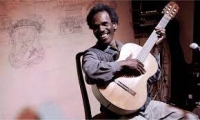
Celso Machado is a Brazilian world music guitarist, percussionist and multi-instrumentalist who lives in Gibsons, British Columbia, Canada. For over forty years he has performed on concert stages throughout Brazil, Western Europe and Canada, as well as in the United States.
Melodibog
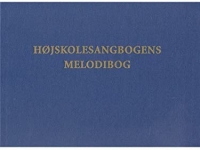
Melodibog A very nice study book containing all the notes of many songs.
Music theory

Music theory is the study of the practices and possibilities of music. The Oxford Companion to Music describes three interrelated uses of the term "music theory"
D'Sound
D'Sound is a Norwegian neo soul band based in Oslo, Norway. The band was formed in 1993 with a line-up composed of lead vocalist Simone Eriksrud, bassist Jonny Sjo and drummer Kim Ofstad.
Modest Mussorgsky
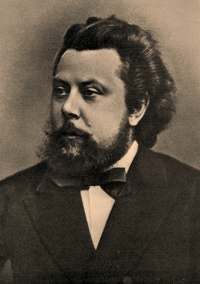
Modest Petrovich Mussorgsky (Russian: Модест Петрович Мусоргский, tr. Modést Petróvich Músorgskiy, IPA: ; 21 March 1839 – 28 March 1881) was a Russian composer, one of the group known as "The Five". He was an innovator of Russian music in the romantic period. He strove to achieve a uniquely Russian musical identity, often in deliberate defiance of the established conventions of Western music.
 Sheet Music Port is a site for those who wants to access popular sheet music easily,
letting them download the sheet music for free for trial purposes.
It's completely free to download and try the listed sheet music, but you have to delete the files after 24 hours of trial.
Don't forget, if you like the piece of music you have just learned playing,
treat the artist with respect, and go buy the original sheet music.
Sheet Music Port is a site for those who wants to access popular sheet music easily,
letting them download the sheet music for free for trial purposes.
It's completely free to download and try the listed sheet music, but you have to delete the files after 24 hours of trial.
Don't forget, if you like the piece of music you have just learned playing,
treat the artist with respect, and go buy the original sheet music.
